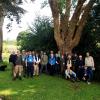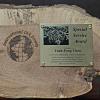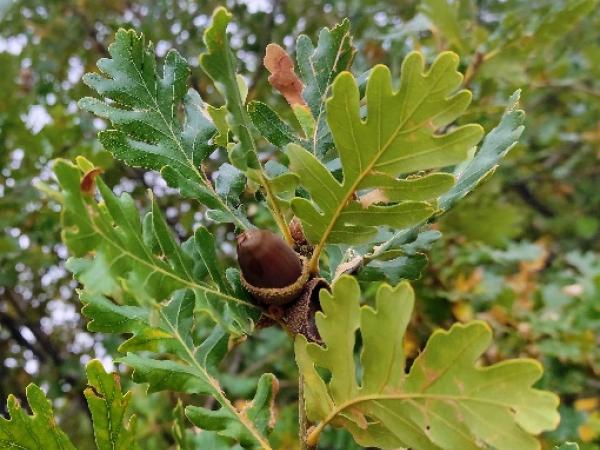Editor's Picks
Plant Focus
If you attended either of the Society’s Tours of California or the Carolinas you may recall that the Thousand Oaks Acorn Co. kindly provided free AcornBars for participants. They were sent to us by Narda Fargotstein, Founder and Project Manager at the company, who joined the Tour of California for our visit to The Huntington.

The name of the company seems to be drawn from their product, but it may have been the other way round: Thousand Oaks is the town where it is based, about an hour’s drive west of Los Angeles. According to their website, the company’s founders were inspired by the oaks there (and their acorns), and also by the traditions of the Chumash, the indigenous people of the area:
Living in Thousand Oaks for over 25 years, we planted oak trees to make a forest, we visited the rocks where the Chumash ground their flour. Each Fall acorns fall into swimming pools and are in parking lots smashed on the asphalt. And then you look at your cereal and your bread and realize how far it has travelled to feed you when you could be a “locavore” and do what the Chumash who have lived tens of thousands of years did, eat acorns which grow in this area. As our journey for sourcing branched out, we found that acorns have been eaten for thousands of years in South Korea, China, Spain, and Greece. And, there are sources for high-quality, gluten free, kosher acorn sources in these countries. So, as we develop our local acorn source we are able to bring you Gluten Free Goodness today.
According to Narda, the flour used in the AcornBars she brought us is ground from Tabor oak (Quercus ithaburensis) acorns imported from Turkey.
Of course, there is a very long tradition, from disparate cultures around the Northern Hemisphere, of eating acorns, by humans and our livestock. In Oak News & Notes Volume 29 No. 1, 2025, for example, Mohammad Khayat Tehranchi drew attention to traditional breads made using acorn flour in the Kohgiluyeh and Boyer Ahmad provinces of Iran. If you want to explore this topic further, there is a wealth of information on the IOS website—try searching on “eating acorns”—but probably the best place to start is Roderick Cameron’s 2019 review of Marcie Mayer’s Greece-based book, Eating Acorns: Field Guide—Cookbook—Inspiration and the links provided. Καλή όρεξη!















